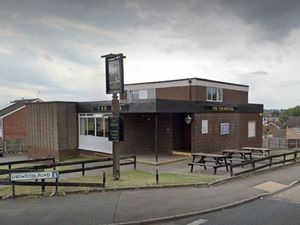Work-related stress linked to Stourbridge man’s death
A “loving” man who was battling with work-related stress and depression took his own life, an inquest heard.

Matthew Lyndon committed suicide at Stourbridge Junction railway station just after 11am on January 16.
The divorced 46-year-old, who worked for HSBC, suffered from depression and anxiety and was diagnosed with ADHD 18 months ago.
Mr Lyndon, of Chapelfield Mews, Stourbridge, was signed off sick from work as a bank administrator from December 28, 2018 until January 3, 2019 after speaking to his GP.
This date was later extended until February 3.
“He wasn’t worried about going back to work as the GP told him he wouldn’t until he was better,” his partner Caroline Garrington told Black Country Coroner’s Court.
“I wasn’t aware of any periods of depression but he was on medication for anxiety and about 18 months ago he was diagnosed with ADHD.
"It did cause some stress for the family as his mother's dementia was getting worse.
"He was worried he would lose his job because he couldn’t concentrate or focus on tasks.
"I told him to share with work his ADHD diagnosis so that they could understand and he did that.
Ms Garrington told the court that Mr Lyndon was worried he had early-onset dementia.
She also told the court how Mr Lyndon’s line manager Miriam Ashton contacted Mr Lyndon through his personal phone by text message and phone calls on January 7, 9 and 14, which led to his condition worsening and making him “tearful.”
Ms Ashton claimed that she was following HSBC policy in referring him to the company’s ‘Occupational Health’ scheme as he was signed off from work.
She said: “I wanted to let him know that I was there to support him. I wanted to make sure I was following the policy as well as supporting him.”
Senior coroner Zafar Siddique’s verdict found that Mr Lyndon died as a result of suicide after struggling with work-related stress but that HSBC had the correct policies in place.
He said: “I don’t think the employer was fully aware of the extent of the work-related stress.
“It seems to me that the extent of this wasn’t made clear to them, and if it had been, they may have reduced the amount of contact.
“I also don’t think it was made explicit to them that he should not be contacted, after his GP’s recommendation.
“He sadly took his own life after a number of stresses in his life, included work, the fear of dementia and believing he would lose his job.”
Ms Garrington added: “He was a kind and loving man, he helped family and friends and had two children and two step-children.
Anyone needing support can call the Samaritans helpline number, 116 123, at any time.





